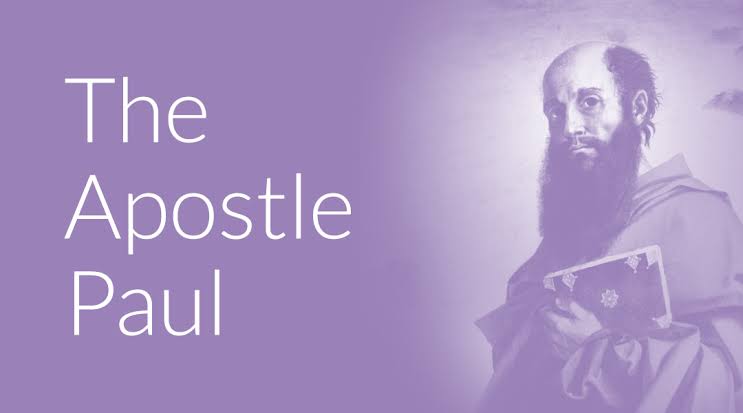“I want to know Christ, yes, to know the power of his resurrection and participation in His sufferings, becoming like Him in His death, and so, somehow, attaining to the resurrection from the dead. Not that I have already obtained all this, or have already arrived at my goal, but I press on to take hold of that for which Christ Jesus took hold of me” Philippians 3:10-12
This passage of Scripture is about Paul’s experience of a personal relationship with Jesus. He states that he may know Him and the power of His resurrection, and the fellowship of His sufferings, being conformed to His death, if, by any means, I may attain to the resurrection from the dead. “That I may know Him” was the simple plea of Paul’s heart. It was a plea unknown to the legalist, who must necessarily focus on his own performance and status to find some kind of peace with God. But Paul wanted Jesus, not self.
Beloved, to know Jesus is not the same as knowing His historical life. It is not the same as knowing correct doctrines regarding Jesus. It is not the same as knowing His moral example, and it is not the same as knowing His great work on our behalf.
We can say that we know someone because we recognize him: because we can distinguish what is different about him compared to other people. We can say that we know someone because we are acquainted with what he does. We know the baker because we get our bread from him. We can say that we know someone because we actually converse with him. We are on speaking terms with that person. We can say that we know someone because we spend time in his house and with his family. We can say that we know someone because we have committed our life to him and live with him every day, sharing every circumstance as in a marriage.
Yet beyond all this, there is a way of knowing Jesus Christ that includes all of these yet goes beyond them.
The apostle Paul stated that he wanted to know in an experiential way the power of Christ’s resurrection. That is, he wanted to experience the same power that raised Christ from the dead surging through his own being, overcoming sin in his life and producing the Christian graces. Paul was here not thinking so much of the power displayed in the resurrection, as of the power which comes out of it, which may most properly be called the power of his resurrection. This the apostle desired to apprehend and to know.
Therefore, the power of His resurrection is an evidencing power. It is the evidence and seal that everything which Jesus did and said was true. As such, the power of His resurrection is a justifying power. It is the receipt and proof that the sacrifice of the cross was accepted as payment in full. The power of His resurrection is a life-giving power. It means that those who are connected with Jesus Christ receive the same resurrection life. The power of His resurrection is a consoling and comforting power. It promises that our friends and loved ones who are dead in Christ live with Him.
The power of His resurrection is an evidencing power.
The apostle adds: “And the fellowship of His sufferings“. Knowing Jesus also means knowing this fellowship of His sufferings. It is all part of following Jesus and being in Christ. We can say that suffering is part of our heritage as the children of God. We get to be part of the family of suffering. If children, then heirs, heirs of God and joint heirs with Christ, if indeed we suffer with Him, that we may also be glorified together (Romans 8:17).
We are being conformed to His death. This reminds us that being in Christ also means being “in” His death. These words had particular relevance to Paul who faced possible martyrdom. He stated: “If, by any means, I may attain to the resurrection from the dead”. Paul was not morbidly focused on suffering and death in the Christian life. He saw that they were a necessary way to the goal of resurrection life right now and the ultimate resurrection from the dead.
i. This was a goal that was worth any means to Paul. The suffering was worth it, considering the greatness of the goal of resurrection from the dead.
He states that “I may attain”. Paul did not doubt that he was saved, but he did long mightily for the completion of his salvation through the resurrection of his body. It was something that he had not yet attained and longed for.
Verse 10 says: “I want to know Christ, yes, to know the power of his resurrection and participation in his sufferings, becoming like him in his death”. Beloved, the apostle Paul wrote from such spiritual maturity and purity that we might expect he believed that he had conquered all spiritual difficulties and saw himself as having arrived at near perfection. Yet he assured us that this was not so. There was no perfectionism in Paul.
Sadly, it is common for many Christian leaders to cultivate the attitude that they have already attained. Without saying the words, they put forth the image of constant triumph that gives the idea that they have already attained and are already perfected.
Just as a little child is a perfect human being, but still is far from perfect in all his development as man, so the true child of God is also perfect in all parts, although not yet perfect in all the stages of his development in faith. But while the work of Christ for us is perfect, and it were presumption to think of adding to it, the work of the Holy Spirit in us is not perfect, it is continually carried on from day to day, and will need to be continued throughout the whole of our lives.
Since Christ has been exalted, the nature of worship has changed. All worship focuses on Jesus Christ. Not “at” but “in” the name of Jesus. This is not mere genuflection. This is reverent worship. Jesus is the object of our worship. Note the word “every” in “every knee should bow”. This is universal subjugation, not universal salvation. The Bible teaches that one day every individual will face the Lord Jesus. When that happens, every knee will bow in acknowledgment of His Lordship. All will acknowledge Him as King Jesus. They will concede to His right to sovereignty. The word “that” introduces a purpose clause. The Father glorified Christ for a purpose, that all creatures might worship Him, both angelic and human. “Of those in heaven” refers to angels and people who have gone to heaven. “Those on earth” refers to human beings who are alive in time. Those under the earth probably refers to fallen angels.
The principle here is that Jesus has the right to absolute sovereignty over our lives. Since we will one day concede to His sovereignty, why not begin now? If you are not a Christian, there will be a day when you will see His majesty and rights in a clear light. If you are a Christian with rebellion in your heart, why not submit that area of your life to Him now?
No other name deserves all honour and praise and might and majesty and dominion and power, for there is no other name under heaven whereby we must be saved. The truth of this Scripture is an offense to all that are in the world, but to those that have been saved it is life, eternal life, abundant life, by grace through faith.
We meet together in His name and come to the throne of grace through the name of Jesus. His name is the name of authority in heaven and hell, and demons, death, and Satan tremble at the awesome name of Jesus. Jesus is the one that is the Author and Finisher of our faith, our great High Priest, our Shepherd and King. He is the Seed of the woman that crushed the head of that old dragon called the devil and Satan. His approach was anticipated in the Old Testament and made manifest in the New. He was the focal point on which the expectation of all the prophets rested and the revelation of the Father in heaven, which has been given to us. Part of the result of Jesus being highly exalted (Philippians 2:9) is that all people, ultimately, will be in submission to Him. The idea may actually be better expressed by “will bow”, referring to something certain to happen. This is phrased in terms including every possible being. Those “in heaven” could include angels and saints who have passed away already. Those “on earth” clearly refer to people living now, or more specifically at the time Paul was writing this epistle. Those “under the earth” could include those who have already died and perhaps the Devil and evil spirits who must submit to the power of the Lord (Revelation 20).
This understanding is also enhanced after looking at verse 11, which refers to every “tongue” confessing that Jesus Christ is Lord to the glory of God the Father. In the future, every being will bow before the Lord, the ultimate reward for the Lord Jesus Christ who became the ultimate servant.
Verse 11 says: “And so, somehow, attaining to the resurrection from the dead”. For the third time in three verses, the word “every” occurs: “every name”, “every knee”, and now “every tongue”. The issue in Jesus’ glorification is not His Saviourhood but His Lordship. Jesus has the rights to my life, He is my Master. The apostle points out that every tongue should confess.
“Confess” means to acknowledge a debt owed. The word “confess” here is intense, and it means to “confess out”. This is out-and-out consent, to consent fully. God wants us to acknowledge openly, that is, publicly, that Jesus is Lord. All creation at one point will give an out-and-out acknowledgment of the right of Jesus to be Lord.
This worship will be with the tongue. We need to verbalize our praise and worship. The tongue expresses our heart and thoughts of the Lord Jesus. Beloved, Jesus Christ is Lord, to the glory of God the Father
When we acknowledge the Lordship of Jesus, we glorify the Father. We contribute to the glory of God when we confess Jesus as our Lord.
We should consult our Lord about whether we should do something. Most of us check with our husband or wife about the course of our lives. Should we do less with the Sovereign Lord of the universe? The principle here is that
when we acknowledge the Lordship of Christ, we glorify God. There is no one as worthy as the Lord of glory. He merits everything we have before God. The best is none too good for Him. If we commit ourselves to the Lordship of Christ, it will save us untold grief. It will bring blessing to our lives. But most of all, it will bring delight to the heart of God. It will glorify God the Father because He decreed the plan to send Jesus to save us from past, present, and future sin. God did the doing, so God gets the glory.
The Lord Jesus has been resurrected, ascended, glorified and highly exalted above every created being and a day is coming when every knee will bow before Him and every tongue will confess that Jesus Christ is Lord to the glory of God the Father. One group of humanity will confess Him as Lord and Saviour, joyfully. The other will be forced to confess Him as Lord and Judge, but they will remain under His grievous condemnation. It is a terrible thing to fall into the hands of God. Who has been rejected and blasphemed, but God is glorified by saint and sinner alike and a day is coming when all that God planned and purposed will be achieved, and Christ will be all in all. But why did it happen that the name of Jesus Christ has been highly exalted above every other name? And how will it happen that every knee will one day bow before His awesome throne – to the glory of God the Father?
Well, God is Spirit and God is eternal, but in order to become the sacrifice for the sin of humanity God had to become like one us. He had to become a man and live as a man (but without sinning) so that He could voluntarily offer His perfect, sinless life as the ransom price for the sin of the world. The only acceptable payment for the sin of the imperfect, sinful race of humanity. The shocking price for sin and the only price that God would accept was the shed blood of the sinless Son of Man.This concludes the hymn of verses 6-11. Paul touches on one final aspect of the exaltation of Jesus, with a focus on the glory of God. In addition to every knee bowing before Jesus (Philippians 2:10), all people will, one day, admit that He is God and Messiah. God’s preference is that this happens in life, while there is a chance for salvation (2 Peter 3:9), rather than after death, when it is too late (Revelation 20:15).
This inevitable victory will bring glory to God the Father. The glory of God is a common scriptural theme, seen both in the Old Testament (Psalm 19:1, Psalm 106:20 and Proverbs 25:2) as well as several times in the New Testament. Jesus spoke of God’s glory (John 11:4 and John 11: 40). Stephen saw the glory of God before his death (Acts 7:55). All have sinned and fall short of the glory of God (Romans 3:23). Believers rejoice in the hope of the “glory of God” (Romans 5:2). In fact, believers are to do all things for the glory of God (1 Corinthians 10:31). Revelation notes the glory of God on three occasions (Revelation 15:8, Revelation 21:11 and Revelation 11: 23), with the glory of God ultimately giving light to the new heavens and earth.
Verse 12 says: “Not that I have already obtained all this, or have already arrived at my goal, but I press on to take hold of that for which Christ Jesus took hold of me”.
Beloved, the Philippian church was one of the best churches in the New Testament, but it was not without its problems. It had an ongoing personality conflict. Two women were holding an ongoing feud. People began to support one or the other; the church began to polarize into two groups. As a result, the whole church was taking sides. The church found itself in a very vexatious situation.
Christ gave Himself in humility, even the humility of a criminal’s death. The whole point of the illustration of Christ was to show the Philippians’ true humility. The “therefore” draws an inference from the example of Christ. They were to keep in view their motivation for their relationships with Christ. “My beloved” indicates that Paul was using sensitive language. This expression also reminded them of their love for the apostle. Paul was not angry; he was grieved. It broke his heart to think that a church he founded was about ready to split. They were not sharing Christ; they were not sending out missionaries. They were more concerned with who was right. Their only concern was to determine who was right, Euodia or Syntyche: “Which side are you on?” The church was reduced to taking potshots at one another.
The apostle states; “As you have always obeyed” which means that in the past, they were obedient to Paul’s authority when he challenged them to change. He makes reference to “not as in my presence only, but now much more in my absence”. Paul could not go to Philippi; he was in jail. No doubt, Paul wished he could sit down with Euodia and Syntyche and work out their differences. He hoped that they would respond to his authority now that he was absent, that is, that they would obey God’s Word, the book of Philippians. The principle here is that in tense relationships, God’s Word needs to be applied to one’s life independently of people.
Are you contributing to a schism in a local church? Is having your own way more important than the progress of the gospel? Are you willing to let the Word of God so grip you as not to allow your relationships to deteriorate? Salvation is ours by faith alone in Christ alone. There is no question that we cannot be saved by our own effort nor that we need to add to Christ’s finished work on Calvary’s cross, for the sacrificial offering of Himself on the cross for our salvation, was all-sufficient in the eyes of God – and it is finished.
As the sinless Son of Man, Christ’s death on the cross fully met God’s redemption price. God accepted Christ’s offering of Himself as the full and final payment for the salvation of all who would believe on the Lord Jesus Christ. His work on the cross was sufficient, fulfilling all the righteous requirements of the Law demanded by God, in order that mankind might be redeemed, saved and justified in the eyes of a righteous God. For salvation is a finished work for all those who are “in-Christ”.
But Paul is calling his beloved brethren in the Philippian assembly, (and us too), to work out your own salvation with fear and trembling. This appears to contradict the clear, biblical teaching that salvation is by grace alone through faith alone in Christ alone. But Paul is not calling us to work for our salvation. We are not expected to save ourselves; to justify ourselves; to sanctify ourselves and glorify ourselves, for it is God Who is working in us and God has promised to finish all the good work that He started in us, when we first trusted Christ as Saviour. This verse transitions from Paul’s focus on Christ’s humility in to the need for Christians to live out their faith for the world to see. He notes his transition by the use of “therefore,” referring to his readers as “my beloved” or loved ones. Paul will also use this reference to the Philippian Christians in Philippians 4:1. In both contexts, his focus is to emphasize his love for his readers while also giving them a command to obey.
Paul notes the Philippians have faithfully followed his teachings whether he was with them, or not. Following a teacher’s instruction when they are not present is the ultimate test of loyalty, and the Philippian Christians have done exactly that. During their years apart, Paul kept in contact with this group of believers. Chapter 4 discusses several times they had sent him financial contributions to assist him in his ministry. Paul also gives a command using a strange and often misunderstood phrase: “work out your own salvation with fear and trembling”. This unique remark speaks of ongoing obedience for those already saved. It’s crucial to note that Paul is not telling them to work for their salvation. This statement implies a need to live out, to practice, demonstrate, and exhibit, the salvation which believers have in Christ.

Senior Pastor,
Divine Grace Ecclesia,
King’eero, Lower Kabete.







